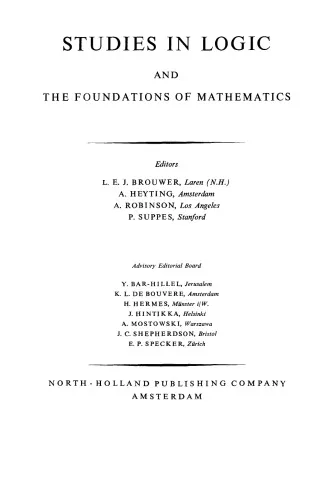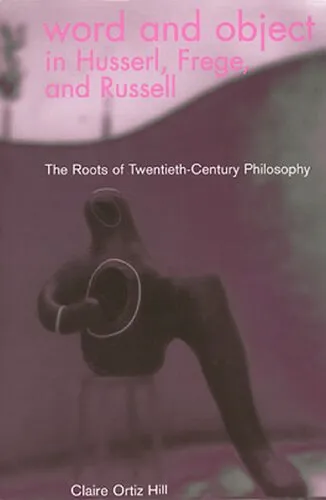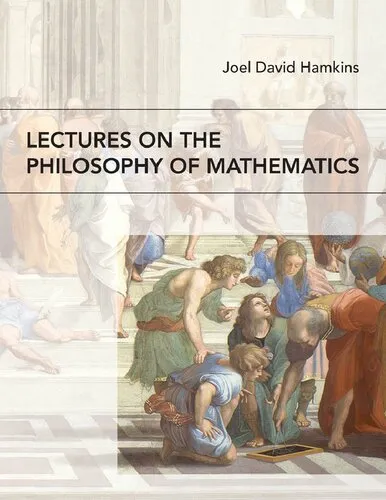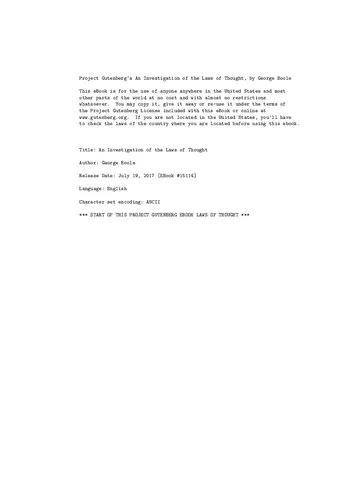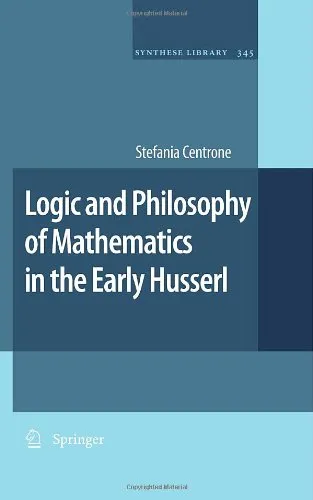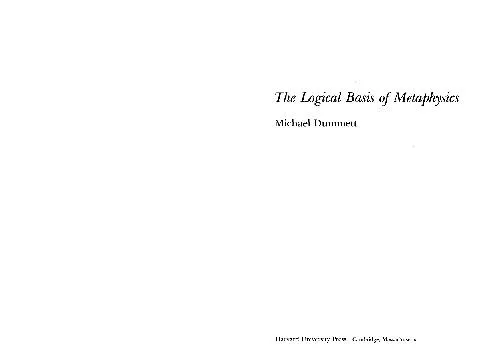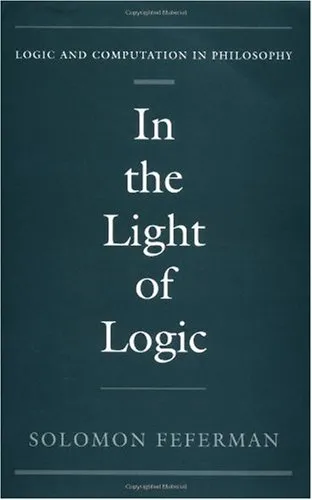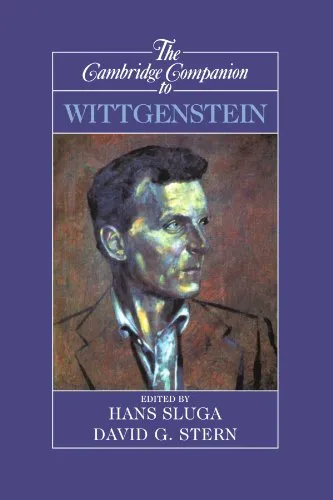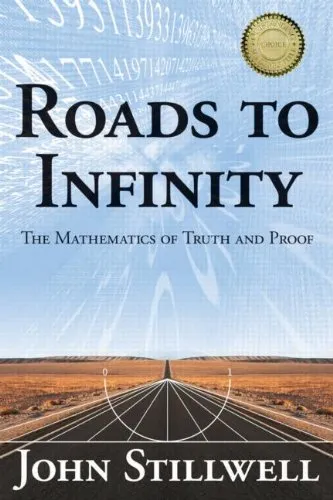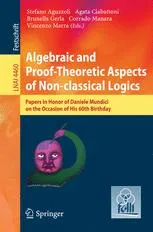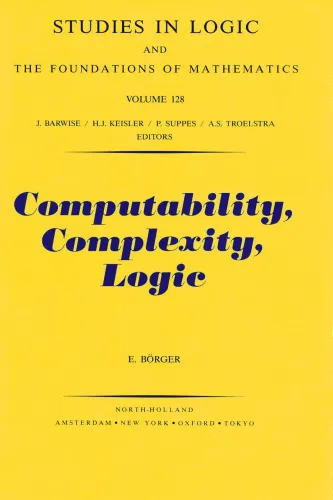Notre Dame Journal of Formal Logic
4.9
بر اساس نظر کاربران

شما میتونید سوالاتتون در باره کتاب رو از هوش مصنوعیش بعد از ورود بپرسید
هر دانلود یا پرسش از هوش مصنوعی 2 امتیاز لازم دارد، برای بدست آوردن امتیاز رایگان، به صفحه ی راهنمای امتیازات سر بزنید و یک سری کار ارزشمند انجام بدینکتاب های مرتبط:
خلاصه تحلیلی کتاب
کتاب «Notre Dame Journal of Formal Logicpp.61—78» اثری تخصصی در حوزه منطق صوری و Formal Logic است که توسط Xu, Wenyan و Liu, Sanyang نگاشته شده است. این مقاله/کتاب در قالب یک مرور و تحلیل عمیق، به ساختارهای منطقی، استدلالهای صوری و تکنیکهای اثبات در منطق ریاضی میپردازد. هر فصل یا بخش آن با رویکردی تحلیلی به بررسی مدلهای منطقی، زبان گزارهای و جنبههای متافیزیکی استنتاج میپردازد تا خواننده بتواند ارتباط میان نظریه و کاربردهای عملی را بهتر درک کند.
با اینکه تاریخ دقیق انتشار این اثر اطلاعات نامشخص است (منبع معتبر در دسترس نیست)، محتوای کتاب نشان میدهد که از آخرین مباحث و جریانهای فکری در فلسفه منطق و نظریه مدل بهره میگیرد. نویسندگان با بهرهگیری از مثالهای دقیق و ساختارمند، امکان فهم پیچیدهترین مفاهیم را برای پژوهشگران و دانشجویان فراهم میآورند.
این اثر نه صرفاً یک متن آموزشی، بلکه یک منبع پژوهشی ارزشمند است که میتواند پلی میان منطق کلاسیک و گرایشهای نوین در Formal Logic باشد. در نتیجه، مطالعه آن برای کسانی که به دنبال درک عمیق و کاربردی مفاهیم منطقی هستند، توصیه میشود.
نکات کلیدی و کاربردی
یکی از ویژگیهای برجسته این اثر، تبیین روشهای اثبات در منطق صوری است. نویسندگان تلاش کردهاند تا با ارائه تعاریف دقیق و رویکرد مرحلهبهمرحله، خوانندگان را در مسیر فهم استدلالهای پیچیده هدایت کنند. مباحثی مانند Soundness، Completeness و Consistency با شفافیت و عمق تحلیل شدهاند.
کتاب همچنین به ظرفیتهای منطق صوری در حل مسائل ریاضی و کامپیوتری اشاره میکند و نشان میدهد که چگونه Formal Logic پایهای برای زبانهای برنامهنویسی و سیستمهای خبره است. این جنبه کاربردی باعث میشود که اثر برای دانشجویان علوم رایانه، ریاضیات و فلسفه به یک منبع مشترک تبدیل گردد.
نویسندگان در کنار تبیین نظریهها، به نقد محدودیتهای برخی مدلهای منطقی نیز پرداختهاند. این رویکرد انتقادی به خواننده کمک میکند تا از دیدگاههای مختلف بهرهمند شده و توانایی ارزیابی مدلها را در موقعیتهای علمی متنوع بهدست آورد.
نقلقولهای ماندگار
قدرت منطق در توانایی آن نهفته است که از دادههای محدود، نتایجی نامحدود استخراج کند.
نامشخص
هر اثبات، پلی میان اندیشه و جهان واقعی است؛ پلی که تنها با دقت میتوان از آن عبور کرد.
نامشخص
چرا این کتاب اهمیت دارد
«Notre Dame Journal of Formal Logicpp.61—78» اهمیت خود را از جامعیت و عمق تحلیلیاش میگیرد. در روزگار حاضر که بسیاری از رشتهها در حال همگرایی هستند، منطق صوری در تلفیق علوم ریاضی، کامپیوتر و فلسفه نقشی مهم ایفا میکند. این کتاب با ارائه مباحث بنیادی و پیشرفته، بستری فراهم میکند که پژوهشگران بتوانند زبان مشترکی برای گفتوگو و توسعه علمی بیابند.
علاوه بر آن، رویکرد آموزشی-پژوهشی کتاب موجب شده تا هم برای یادگیری و هم برای تحقیق مفید باشد. این ویژگی دوگانه، ارزش این اثر را برای کتابخوانهای جدی و پژوهشگران مضاعف میکند، چرا که میتوانند از آن هم به عنوان منبع پایه و هم به عنوان مرجع پیشرفته بهره بگیرند.
نتیجهگیری الهامبخش
مطالعه «Notre Dame Journal of Formal Logicpp.61—78» فرصتی است برای فهم عمیق منطق صوری و ارتباط آن با دامنههای علمی گوناگون. این اثر، علاوه بر آموزش مفاهیم پایه، دریچهای تازه به نقد و توسعه نظریهها میگشاید. اگر به منطق ریاضی، نظریه مدل یا
Analytical Summary
The work titled Notre Dame Journal of Formal Logicpp.61—78 represents a substantive contribution to the rigorous analysis of logical systems, bridging pure formal frameworks with philosophical interpretations. This segment within the larger publication offers both precise formal reasoning and contextual reflection on the implications of such reasoning in broader academic discourse. Across these pages, readers encounter a meticulous examination of logical propositions, proofs, and structures, delivered with both mathematical clarity and philosophical depth.
The text subdivides complex logical arguments into digestible components, making it accessible to scholars from mathematics, philosophy, and related disciplines. While the publication year remains information unavailable due to no reliable public source, the material’s relevance persists regardless of historical context. The discussion navigates key areas such as modal logic, inferential structures, and proof theory, with an emphasis on formal consistency and the soundness of logical deductions. The authors engage directly with existing literature to position their findings within the continuum of logic research, offering critiques and refinements where necessary.
Key Takeaways
For professionals and academicians invested in formal logic, the Notre Dame Journal of Formal Logicpp.61—78 yields several important insights that advance both understanding and application of logical principles.
Foremost among the takeaways is the emphasis on the interplay between syntactic form and semantic interpretation—a central theme in both formal logic research and philosophical logic analysis. The text underscores the necessity of rigorous methodological approaches and illustrates how small shifts in logical form can lead to significant semantic differences.
It also reinforces best practices in logical proof construction, advocating for clarity in variable use and explicit definition of terms. The authors provide examples to show how abstract formulations can be tied to real-world reasoning scenarios, thereby enhancing the practical utility of formal logic.
Additionally, the work highlights common pitfalls in interpreting logical statements, particularly in cross-disciplinary contexts where terminology may blur. This serves as a useful reminder for researchers and practitioners to maintain precision and context awareness in their reasoning processes.
Memorable Quotes
“Precision in logic is less about the complexity of symbols and more about the clarity of thought they represent.”Unknown
“Formal logic provides the scaffolding upon which philosophical inquiry can construct robust arguments.”Unknown
Why This Book Matters
The significance of Notre Dame Journal of Formal Logicpp.61—78 lies in its ability to speak to multiple disciplines while maintaining uncompromising rigor. It functions as both a reference point and a catalyst for further research in formal logic.
For scholars in philosophical logic analysis, the text offers a foundation to build upon, especially in the integration of formal structures into conceptual discourse. For mathematicians and computer scientists, it serves as a methodological anchor, reaffirming the value of well-structured logical systems in theoretical and applied contexts.
Moreover, the book’s approachable yet scholarly tone invites engagement from a broader audience, including graduate students and seasoned academics, ensuring that complex concepts are disseminated beyond the confines of a single field.
Inspiring Conclusion
Reading Notre Dame Journal of Formal Logicpp.61—78 is an invitation to engage deeply with the structures that underpin rational discourse. Its articulated arguments and methodical approaches not only illuminate the mechanics of formal logic but also challenge the reader to apply such rigor in diverse analytical contexts.
Whether your interest lies in formal logic research, philosophical logic analysis, or multidisciplinary applications of reasoning, this work has the potential to refine your understanding and sharpen your analytical skills. Engage with its content, share insights with peers, and foster discussions that expand the boundaries of logical thought. The next step is clear: immerse yourself in its pages and join the conversation it inspires.
دانلود رایگان مستقیم
شما میتونید سوالاتتون در باره کتاب رو از هوش مصنوعیش بعد از ورود بپرسید
دسترسی به کتابها از طریق پلتفرمهای قانونی و کتابخانههای عمومی نه تنها از حقوق نویسندگان و ناشران حمایت میکند، بلکه به پایداری فرهنگ کتابخوانی نیز کمک میرساند. پیش از دانلود، لحظهای به بررسی این گزینهها فکر کنید.
این کتاب رو در پلتفرم های دیگه ببینید
WorldCat به شما کمک میکنه تا کتاب ها رو در کتابخانه های سراسر دنیا پیدا کنید
امتیازها، نظرات تخصصی و صحبت ها درباره کتاب را در Goodreads ببینید
کتابهای کمیاب یا دست دوم را در AbeBooks پیدا کنید و بخرید
1067
بازدید4.9
امتیاز0
نظر98%
رضایتنظرات:
4.9
بر اساس 0 نظر کاربران
Questions & Answers
Ask questions about this book or help others by answering
No questions yet. Be the first to ask!


